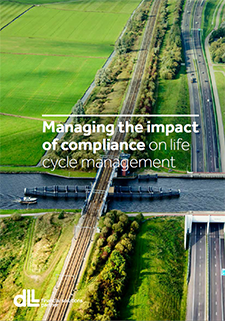Data protection is an important topic for manufacturers, distributors and resellers of equipment in today’s market. Across all industries, assets are becoming increasingly smart and connected. As a result, more data is being stored on those assets than ever before. Some of this activity-based data on the asset’s usage is probably "harmless". Personal data however, generally includes information that should not be disclosed to the outside world. Current and future data protection legislation indicate it’s vital to ensure data is adequately wiped before an asset changes hands between customers (business end-users of assets).
Methods of data wiping
(Personal) data, is in many cases stored on the asset’s built-in hard drive, which can be reused or destroyed. Data-wiping can be done in three different ways:
- The stored data is wiped using special software (software destruction), whereby the hard drive is overwritten with zeros and ones to make the stored data irretrievable. For some assets, such as IT assets, this method is the standard procedure, as it maintains the value of the equipment.
- The hard drive is replaced and degaussed, a technique that uses a strong magnet to wipe data from the hard drive.
- The hard drive is replaced and shredded (physical destruction) into small pieces.
At the customer’s request, the service provider can provide a certificate that, on the basis of a serial number, confirms that the data has been wiped from the hard drive.
Data-wiping services

 Research and insights:
Research and insights: